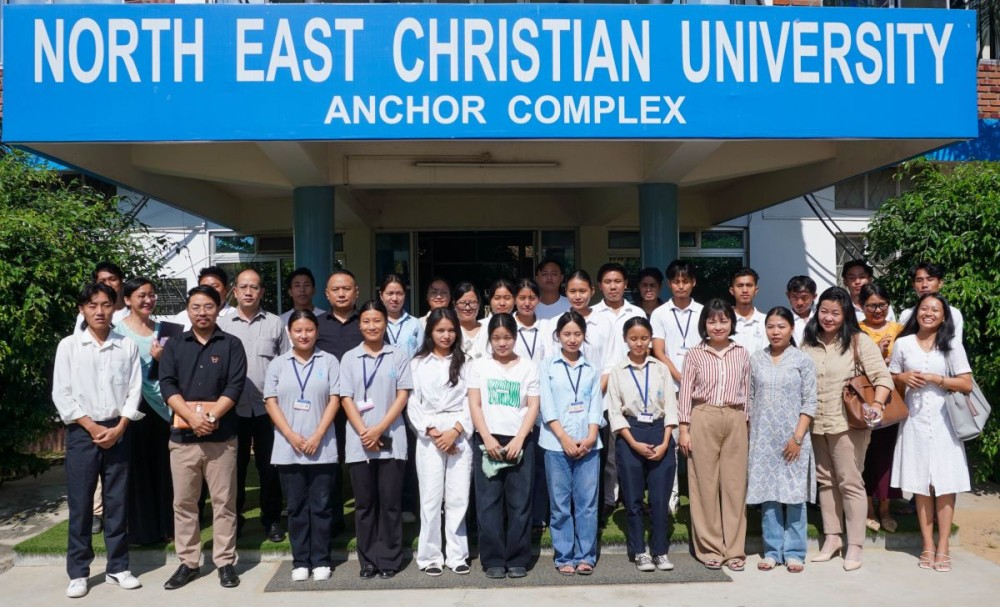North East Christian University (IQAC organised a Cyber Security Awareness on October 15.

Dimapur, October 16 (MExN): To observe the month of October as Cyber Security Awareness month, North East Christian University (NECU) Internal Quality Assurance Cell (IQAC), organised a talk on Cyber Security Awareness on October 15. The talk was primarily initiated to create awareness among students, faculty and office staffs about cyber culture and cyber security, stated a press release.
The resource person, Ninoto I Zhimomi, ACP, Chümoukedima emphasized on the importance of being informed, maintaining digital hygiene and be a responsible digital citizen in today’s integration of technology-driven world. He defined cyber crime, as any criminal activity that targets individuals using computers and networks. Cyber crime according to the speaker can be categorized as hacking, DoS/DDoS Attacks (Denial of Service), Trojan/Malware/Ransom ware Attacks, Phishing/Spear Phishing, Social Engineering, Financial Frauds and Cyber Bullying/Cyber Stalking. The latest trends in cyber crime are Crypto currency scams, Digital Arrest, Deepfake/AI and AI based frauds, Cloning of social media Account and activities on the Dark Web.
Highlighting the existing threats, he Zhimomi spoke on the importance of being legally aware to address the issues at hand. He explained the important provisions of the Information Technology (IT) Act, 2000, 2008 and 2013, wherein laws related to cheating by personation, identity theft, publishing or transmitting explicit content involving children and violation privacy are considered as punishable offense as per the law.
The resource person also elaborated on how criminals exploit victims through fake crypto investments, impersonate law enforcement for extortion, misuse private content for blackmail, and duplicate profiles for fraud. Finally, the talk concluded with practical 9 tips of preventive measures to avoid falling victim to such scams. He advised participants to verify online sources before transactions, avoid sharing sensitive personal details or intimate content or documents, avoid clicking on images or links received through emails or text messages, keep mobile or computer software up to date, consider keeping strong passwords/change at regular intervals, increase privacy settings on all social media accounts, always lock your device when not in usage,and report suspicious online behavior promptly.
He also shared details of the National Cyber Crime Reporting Portal: Report anonymously or report & track i.e., https://www.cybercrime.gov.in or may file a report at Digital Security Council of India https://www.DSCI.in which is a cybercrime coordination Centre.
Earlier, the session was chaired by Otoli Yeptho, Asst. professor, NECU, English Programme. Welcome address was given by Dr Kangzanding Thou, Director (Academics) wherein he highlighted the need to create awareness and impart quality education relevant to modern life and also understand the importance of managing cybercrime threats through cyber security education.
The programme ended with a vote of thanks by Dr Chibenthung Yanthan, Coordinator, IQAC.






